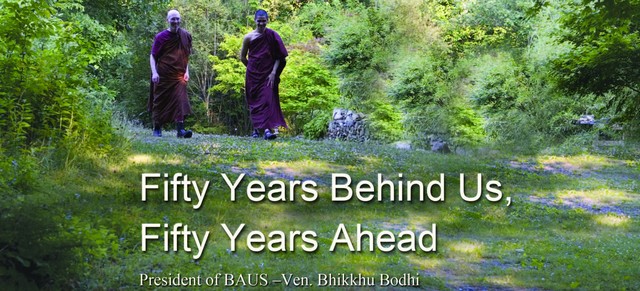
Though Buddhism was born in India, within its first millennium it had spread westward as far as present-day Afghanistan, eastward to China and Korea (and later Japan), and southward to Sri Lanka and Southeast Asia. During its long journey, Buddhism has inspired great libraries of scriptures and philosophical texts, many schools of philosophy and meditation, elaborate rituals, and monasteries that have served as centers of spiritual culture. But at the heart of Buddhism lies a simple and profound message: the message of a way to release from suffering, a path of wisdom and compassion that leads to happiness in this life and to ultimate liberation.
In the late nineteenth century, as the first English translations of Buddhist texts appeared, a number of American intellectuals felt attracted to the Dharma, and in the twentieth century, this interest greatly increased. As Asian Buddhist teachers arrived in the U.S. and began to teach, the Dharma slowly set down roots in this country and more Americans embraced the Buddha’s path. But for Buddhism to thrive, it needs not only people but an organization to give it structure. For this reason in the early 1960s, a group of Chinese Buddhists living in New York, led by the late Ven. Lok To, Dr. C.T. Shen, and his wife Mrs. Woo Ju Shen, decided to establish an association that would unite Buddhists in America under a common banner. Thus in 1964 they created the Buddhist Association of the United States.
For over fifty years BAUS has spread the Dharma in various ways: through lectures, classes, guided tours, meditation retreats, religious rituals, the free book distribution program, courses for prisoners, and classes in Buddhist languages. This year, 2014, BAUS celebrates its 50th anniversary, an achievement that should be applauded.
The ability of BAUS to continue through five decades is testimony to the wisdom that went into its creation. The founders of BAUS have passed away. Several generations of presidents, senior officers, and abbots have come and gone, but BAUS still retains its vitality and commitment to its mission. The strength of BAUS comes from the monastic presence at its center: the monks and nuns of Chuang Yen Monastery and the Temple of Enlightenment, who carry on the Buddha’s heritage of renunciation and self-discipline. But Buddhism requires the collaboration of monastics and laypeople, and thus the lay devotees, working hand in hand with the monastics, have made an immense contribution to the success of BAUS.
On this 50th anniversary, let us rejoice in the hard work that the founders and early members applied to create BAUS and keep it alive for five decades. And let us renew our commitment to ensure that BAUS will thrive long into the future.
With blessings,
Ven. Bhikkhu Bodhi President
